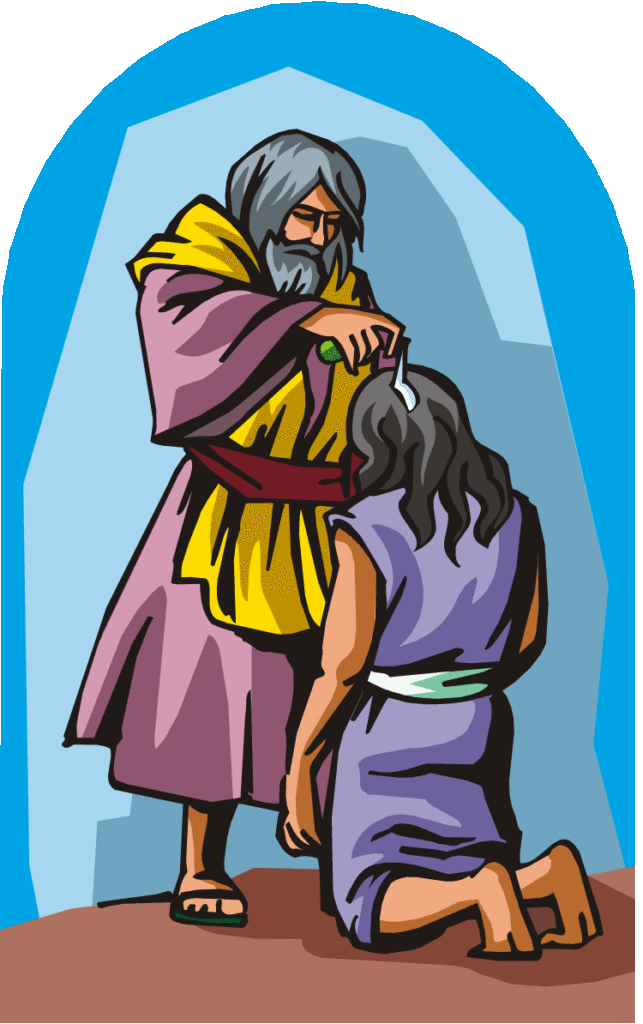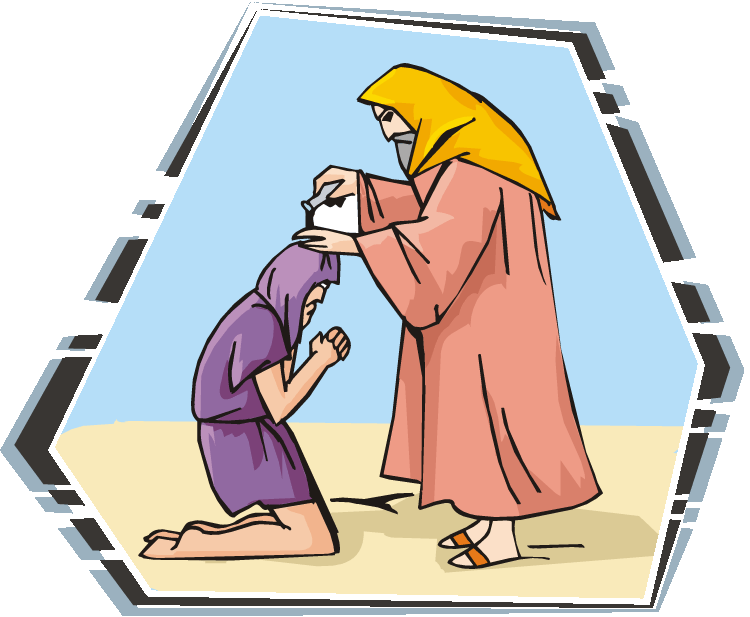
Hebrews 6

Hebrews 6:1, Elementary principles of Messiah. What follows are the six principal doctrines of the redeemed believer, yet they are all subsets of faith in Messiah Yeshua, which is foundations upon which it all rests.
Repentance from dead works.True biblical repentance involves turning from sin or a lifestyle of Torahless behavior, since sin is the violation of the Torah-law of Elohim (1 John 3:4), and lining all aspects of our lives up with the Torah-Word of Elohim.
Hebrews 6:2, Doctrine of baptisms. (See notes at Matt 28:19.)
Laying on of hands. Ordination is something that YHVH instituted in the Torah when he charged Moses to impose hands upon the Levites, and instructed all Israel to do the same (Num 29:10). We also have the example of Moses anointing with oil Aaron (Exod 29:10). Of course, kings of Israel were also anointed with oil to consecrate them for their official duties by the laying on hands.

Laying on of hands/ordination was earth’s confirmation of a heavenly calling. Elohim had already called someone into ministry and men were simply confirming what Elohim had already determined. Ordination doesn’t confirm the calling, but the other way around.
In the Testimony of Yeshua, by lot, the 11 apostles chose Matthias to replace Judas (Acts 1). This was heaven’s choice, yet no mention of ordination is recorded. After that, we have the choosing of the seven in Acts 6:1. These were men who were already full of the Spirit and wisdom, so the apostles simply confirmed the work of the Spirit in them by laying hands on them (verse 6).
The same is true in the other examples of ordination in the Apostolic Scriptures. Men would be mentored by a leader/apostle, and after a period of time (“lay hands on no one suddenly” 2 Tim 5:22)—much like the five years of mentoring that occurred with a priest in training in the Torah (from age 25 to 30), and after meeting the qualifications of eldership (see 1 Tim 3:1–12 and Tit 1:5-9) they were appointed. Of course, those who were the mentors had oversight over those they mentored. It was less of a authoritatively-hierarchical system and more of patriarchal system with the older men lovingly overseeing those they had raised up—and only exercising strict authority when needed, which occurred only rarely.
Of course, there was no such thing as licensing or even denominations which issue licenses in the Apostolic Scriptures. To me, that seems more like a man-made thing for the purposes of maintaining power, control and keeping the money flowing upward.
In the entire Bible, there are no examples of or precedence for women being ordained. Paul says in 1 Timothy 5:22 “to lay hands suddenly on no man.” He is gender specific. Women did, however, minister in conjunction with their husbands—their spiritual heads, which is something Paul is very clear about in Ephesians 5:21–24. Even though in the body of Yeshua there is neither male nor female so that all are equal before Yeshua, when it comes to governance in the congregation, the Bible upholds male leadership. Now that doesn’t mean that women can’t hold high positions of authority, but always in conjunctions with their husbands. We have the example of the apostolic team of Andronicus (husband) and Junia (wife) whom Paul called apostles (Rom 16:7), Aquila and Priscilla who were co-laborers. Sometimes Priscilla’s name is mentioned first. Obviously, this husband and wife team were such a tight unit that it didn’t matter whose name was mentioned first. Of course, we have examples in the Scriptures of women prophets. Deborah, though she was a judge in Israel, seems to have been married to Barak the military general. If so, we have an apostolic-prophetic team operating together to lead the Israelite nation. Huldah was a prophetess who seemed to operate without male headship, though she hung out with other prophets in a “school” or neighborhood where the prophets lived. So there was must have been some accountability between her and the other prophets, although she was the most gifted of YHVH since hers is the only name mentioned. Then we have the daughters of Philip the evangelist who were prophetesses—again, presumably under the spiritual leadership of their father (Acts 21:8-9).
Hebrews 6:6, If they fall away, to renew.
Is the “Once Saved Always Saved Doctrine” Biblical?
Continue reading

